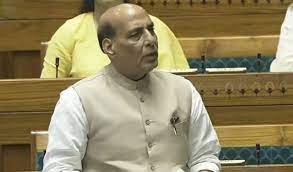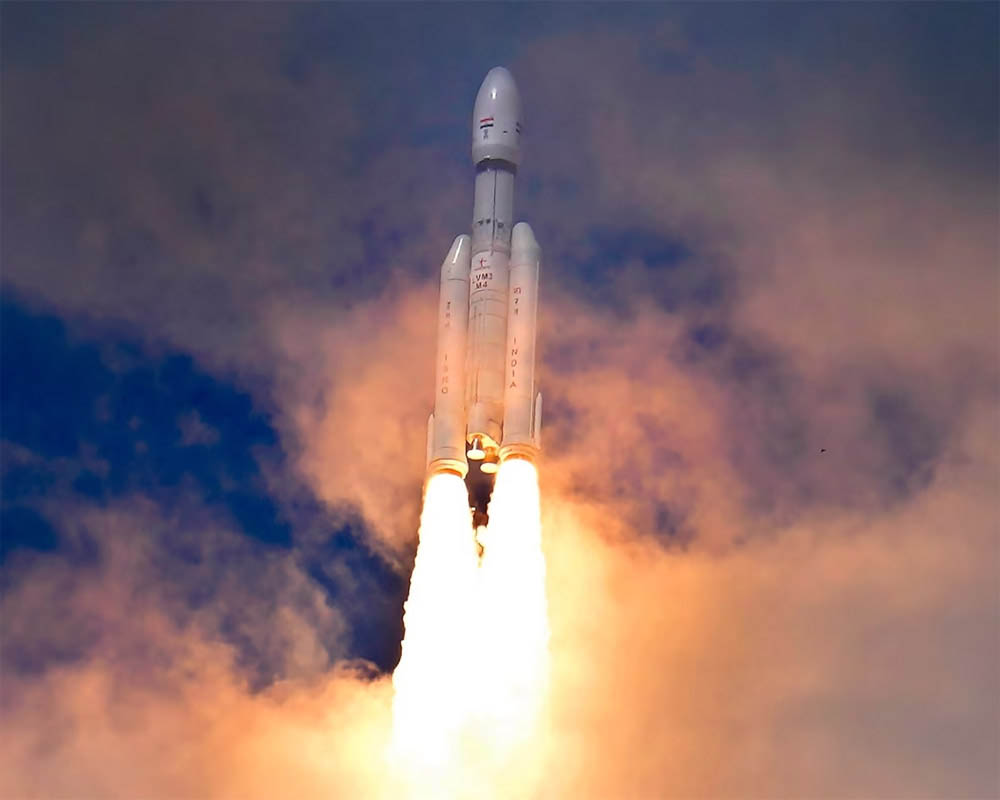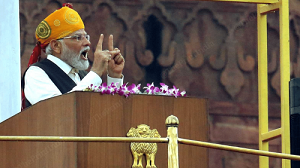
POLITICS
‘No science without sanskar’ — Rajnath slams Oppn’s ‘pseudoscience’ jibe in Chandrayaan-3 discussion
- Admin
- Sep 22, 2023

‘No science without sanskar’ — Rajnath slams Oppn’s ‘pseudoscience’ jibe in Chandrayaan-3 discussion
Anyone saying culture & science can’t go together understands neither, he says during a debate. Opposition, however, says Chandrayaan-3’s success ‘doesn’t belong to one individual’.
Chandrayaan-3 and space continued to be part of the Lok Sabha discussions Friday, this time in the context of tradition. Science and India’s ancient traditional knowledge go hand in hand, Defence Minister Rajnath Singh told the House, adding that the Bharatiya Janata Party (BJP)-led government takes the defence of India’s culture and heritage as seriously as national security
Singh was speaking during a discussion on ‘Success of Chandrayaan-3 Mission & other Achievements of our Nation in the Space Sector’.
“Under the aegis of (Prime Minister Narendra) Modi, we are giving equal importance to Sanskriti and science. It is not like giving importance to one will take away from the other,” Singh, a former physics lecturer at K.B. Postgraduate College, Mirzapur, said.
Expanding on his argument, he said that when German philosopher Friedrich Nietsche announced ‘God is Dead’, he freed Germans from all notions of morality (naitikta) and led to the eventual rise of Nazism in Germany.
“The weapons that were used during the Holocaust in Germany to destroy its people, all were a result of scientific advances — but the lack of ethics and empathy led to the misuse of these advances,” he said. In the same vein, he said that the atomic bombs dropped on Hiroshima and Nagasaki were scientific achievements, but “dharmic shakti” was lacking.
“If people had been religious, a lot of lives would have been saved,” he said. “That is why, no matter how far our scientific achievements go, they will be incomplete without our sanskriti and sanskar.”
Singh also said that scientific temperament among Indians was a culture inherited from ancient times, and that opposing Sanskrit and ancient knowledge had lately become a symbol of progressiveness.
“People are asking what is the relation between ancient Indian culture and science,” he asked.
“Under the aegis of (Prime Minister Narendra) Modi, we are giving equal importance to Sanskriti and science. It is not like giving importance to one will take away from the other,” Singh, a former physics lecturer at K.B. Postgraduate College, Mirzapur, said.
Expanding on his argument, he said that when German philosopher Friedrich Nietsche announced ‘God is Dead’, he freed Germans from all notions of morality (naitikta) and led to the eventual rise of Nazism in Germany.
“The weapons that were used during the Holocaust in Germany to destroy its people, all were a result of scientific advances — but the lack of ethics and empathy led to the misuse of these advances,” he said. In the same vein, he said that the atomic bombs dropped on Hiroshima and Nagasaki were scientific achievements, but “dharmic shakti” was lacking.
“If people had been religious, a lot of lives would have been saved,” he said. “That is why, no matter how far our scientific achievements go, they will be incomplete without our sanskriti and sanskar.”
Singh also said that scientific temperament among Indians was a culture inherited from ancient times, and that opposing Sanskrit and ancient knowledge had lately become a symbol of progressiveness.
“People are asking what is the relation between ancient Indian culture and science,” he asked.









